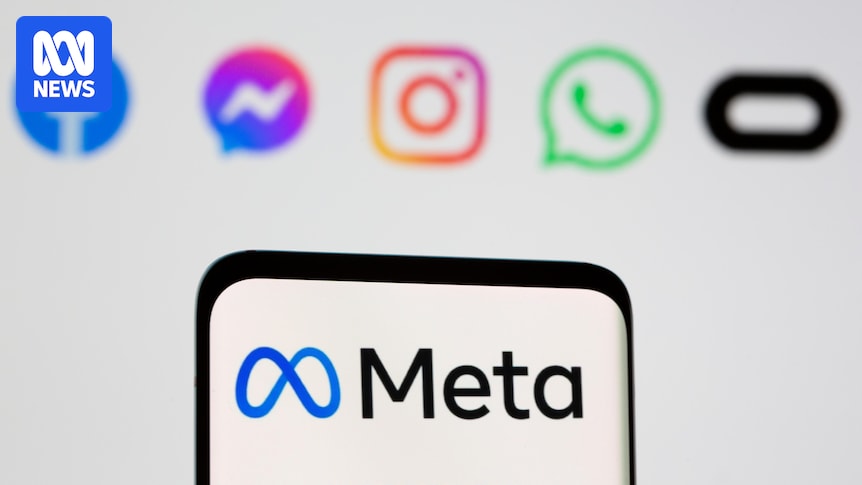
Suna often scrolled through her social media accounts to relive memories of her late father, who passed away from dementia in 2019. For her, these digital archives were a way to revisit cherished moments. “When my dad died, it was very traumatic, so I would often go on Facebook to look at photos of him,” Suna explained. “Each post was like a reminder, holding a memory of the times I spent with him. Even the simplest of photos, like one of us drinking coffee, meant a lot to me.”
However, on July 12, Suna’s access to these memories was abruptly severed. Meta, the parent company of Facebook and Instagram, banned her accounts, falsely accusing her of posting child exploitation material. “They’re accusing us of things we haven’t done with no proof, it’s unfair,” Suna lamented. Despite appealing the decision, her efforts were unsuccessful, leaving her devastated and disconnected.
Global Impact of Meta’s “Ban Wave”
Suna is not alone in her plight. Dozens of users have reported similar experiences, with their digital lives upended by what is being termed the Meta “ban wave.” Many have voiced their devastation at losing sentimental memories and being unable to communicate with friends and family. Thousands globally have signed a petition accusing Meta’s “broken AI enforcement systems” of wrongful bans and being unresponsive to pleas for assistance.
Meta did not respond to inquiries about why Suna was wrongly accused. However, the company did reinstate her account shortly after email correspondence. This incident highlights significant concerns over Meta’s methods for identifying accounts that allegedly breach community standards.
The ‘Ephemerality’ of Social Media
On July 15, Eliza Aydin faced a similar ordeal. After posting a photo on Instagram to celebrate her 22nd birthday, she received an email notifying her that her account had been suspended for violating community standards on child sexual exploitation, abuse, and nudity. Despite appealing, she remains locked out of her primary communication platform.
“I use Instagram as a way to document my life,” Aydin shared. “I have family milestones, personal achievements, old photos with friends, and voice notes that I can’t access anymore because they’re not saved anywhere else. It’s been incredibly stressful. I feel like I’m being silenced.”
University of Melbourne senior lecturer in media communications, Jennifer Beckett, commented on the fragility of online life. “We’re used to being able to create so many memories so quickly that we have kind of forgotten about the ephemerality of a lot of that,” she explained. “Often, we don’t realize what the memories mean to us now until we lose them.”
Implications of False Accusations
Being falsely blamed for interacting with child abuse material can have severe repercussions. Dr. Beckett noted, “Can you imagine what that does to somebody’s reputation? Those accusations can impact someone’s mental health and their relationships within the community.”
Meanwhile, the Australian government is working toward a set of industry guidelines to help users raise issues and achieve better outcomes, including addressing account bans. This initiative comes as dozens of Facebook and Instagram users have reported wrongful account suspensions affecting their livelihoods and personal lives.
Backing Up Precious Memories
As users grapple with the consequences of losing access to their digital archives, experts emphasize the importance of backing up precious information. Karen Sutherland, senior lecturer in public relations at the University of the Sunshine Coast, advises returning to “old-school methods” for preserving memories. “If they really are treasured memories, you have got to treat them that way,” Dr. Sutherland said.
- Cloud platforms
- External hard drives
- Physical photo albums
On platforms like Facebook and Instagram, users can download copies of their information, including posts, photos, videos, and messages. Dr. Beckett stressed the necessity of keeping physical copies, as reliance on digital platforms can be precarious. “It’s ones and zeros in space, and you are completely at the whims of the political economy of digital media,” she remarked.
AI Moderation: A Work in Progress
Meta claims to use both human and AI technology to moderate content against its community standards. However, experts argue that AI moderation lacks the accuracy needed for nuanced content assessment. “Soon after President Donald Trump came into office, Meta decided to cut out human moderators and rely more on AI,” Dr. Sutherland explained. “But there lies the problem. AI isn’t developed enough to accurately understand different nuances around different types of content.”
Dr. Beckett concurred, noting, “While AI can make a decision, it’s very bad at context.” Despite these concerns, Meta did not comment on claims that AI was responsible for the unfair bans.
As Suna and Aydin await resolution, the incidents underscore the need for improved moderation systems and user support. The ongoing challenges highlight the delicate balance between digital convenience and the potential pitfalls of relying on technology for preserving our most cherished memories.






